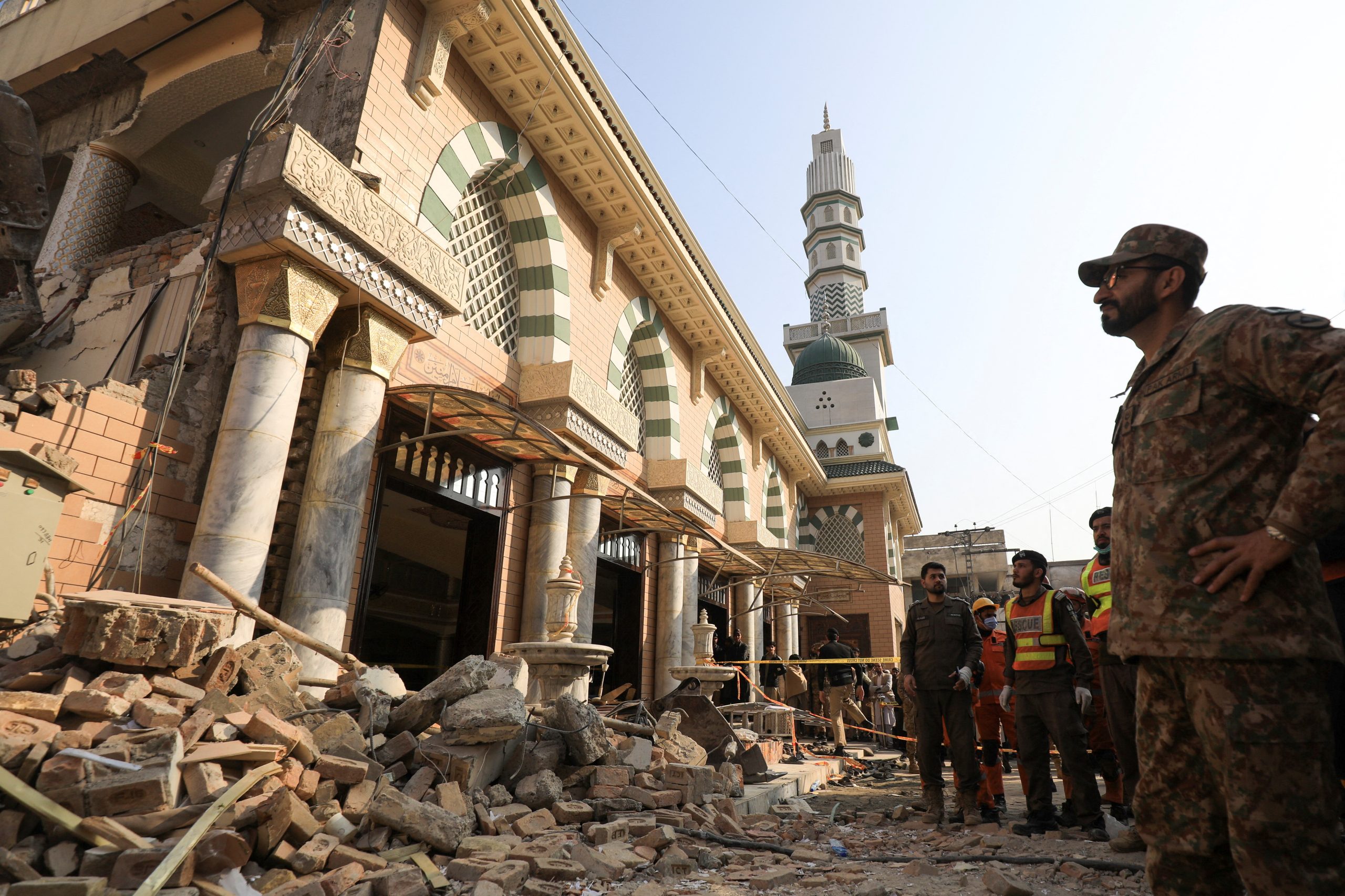
[elfsight_social_share_buttons id=”1″]
Distraught relatives thronged hospitals in Pakistan‘s Peshawar on Tuesday to look for their kin a day after a suicide bombing ripped through a crowded mosque in a heavily fortified area of the city, killing 100 people and injuring more than 200 others, mostly policemen.
The attack, in the Police Lines district, was the deadliest in a decade to hit this restive, northwestern city near the Afghan border and comes amid a surge in violence against the police.
A commander from the Pakistani Taliban, known as TTP, claimed responsibility for the attack saying it was “revenge” for the death of a TTP militant last year shortly after the bombing took place. A TTP spokesperson, however, later walked back the claims saying it is not the group’s policy to target mosques or religious places.
According to World News Group, “[TTP] has been trying to take over the government and enforce strict Islamic laws since 2007. In November, it ended a months-long cease-fire agreement with the government forces.”
“My son, my child,” cried an elderly woman walking alongside an ambulance carrying coffins, as rescue workers stretchered wounded people to a hospital emergency unit.
At least 170 people were wounded in the blast, which demolished the upper story of the mosque as hundreds of worshippers performed noon prayers.
Riaz Mahsud, a senior local government official, said the casualty toll was likely to rise as workers searched through the debris just over 24 hours later.
“So far, 100 bodies have been brought to Lady Reading Hospital,” spokesman for the largest medical facility in the city, Mohammad Asim, said in a statement.
Authorities say they do not know how the bomber managed to breach the military and police checkpoints leading into the Police Lines district, a colonial-era, self-contained encampment in the city center that is home to middle- and lower-ranking police personnel and their families.
Given the security concerns in Peshawar, the mosque was recently built to allow police to pray without leaving the area. Defense minister Khawaja Asif said the bomber was in the first row in the prayer hall when he struck.
Officials have promised a thorough review of the failure in safety protocols and hold those responsible accountable.
“There was a security lapse and the inspector-general of the police has set up an inquiry committee, which will look into all aspects of the bombing,” one Pakistani official said in a statement. “Action will be taken against those whose negligence” caused the attack.
The attack is the deadliest in Peshawar since twin suicide bombings at All Saints Church killed scores of worshippers in September 2013, in what is the deadliest attack on Pakistan‘s Christian minority.
Peshawar sits on the edge of the Pashtun tribal lands, a region mired in violence for the past two decades. The most active militant group in the area is the Pakistani Taliban, also called Tehreek-e-Taliban Pakistan (TTP), an umbrella group for Sunni and sectarian Islamist factions opposed to the government in Islamabad.
Pakistani Prime Minister Shehbaz Sharif visited the site of the blast and vowed to take “stern action” on those responsible for the tragedy.
Just returned from Peshawar. The sheer scale of the human tragedy is unimaginable. This is no less than an attack on Pakistan. The nation is overwhelmed by a deep sense of grief. I have no doubt terrorism is our foremost national security challenge.
— Shehbaz Sharif (@CMShehbaz) January 30, 2023
The bombing took place a day before an International Monetary Fund (IMF) mission arrives in Islamabad for talks on a stalled $7 billion bailout.
Copyright 2023 Thomson/Reuters. Additions and edits for FISM News by Michael Cardinal
